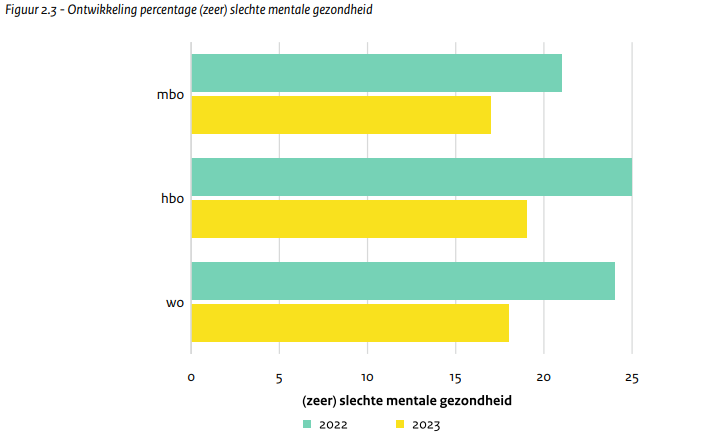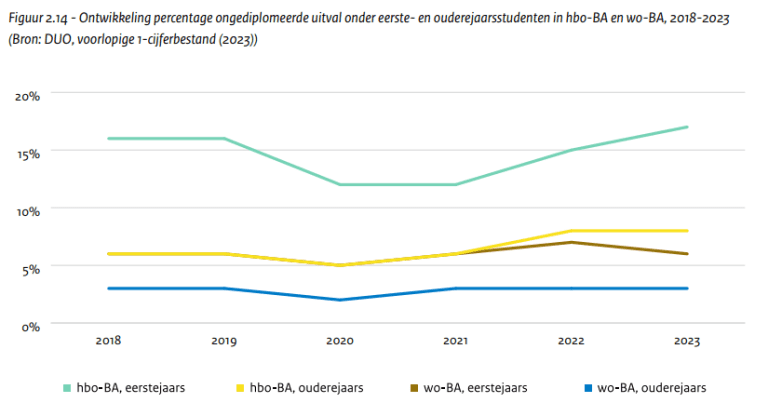The impact of the Covid19 crisis is still visible in education, new research shows. Especially at universities of applied sciences many students are dropping out.
(Photo: Dalia Madi)
To mitigate the consequences of the Covid19 pandemic in education, the government made almost six billion euros available for the National Programme on Education (NPO) in 2021. For the fifth time, what has been done with this money has been evaluated (in Dutch).
What is clear is that the return to physical education has brought improvement. Although almost 20 per cent of students still struggle with mental problems, that percentage is lower than last year. Universities and universities of applied sciences have mainly hired additional student psychologists and deans with the NPO funds for welfare.
 (Source: student poll NPO)
(Source: student poll NPO) Climate anxiety
Yet students’ well-being problems are not over yet, the researchers underline. There are now other causes for this, such as financial worries, the tight housing market and climate anxiety.
 (Source: Fifth progress report NPO)
(Source: Fifth progress report NPO)Dropout rate
What probably does not contribute to well-being are study problems. A large group of students still leaves higher education without a diploma. At universities of applied sciences, the first-year dropout rate rose from 15.5 to 16.6 percent in one year, and senior students have also stranded more ofthen than before Covid: 6 per cent then and 8 per cent now.
At the universities, the problems are less visible. There, the dropout rate among first-year and senior students is almost at the same level as before Covid.
Tricky
The exact effect of NPO support measures is difficult to discern, according to the researchers. All sorts of things are being done, but not everything is paid for from NPO funds.
President Demi Janssen of the Dutch National Student Association thinks it is great that students are feeling better, but is at the same time concerned about the many students who are still struggling with their mental health. “This is why we must continue our efforts to give these students the support they need.”
HOP, Hein Cuppen
Do you have a question or comment about this article?
redactie@hogeronderwijspersbureau.nl


Comments are closed.